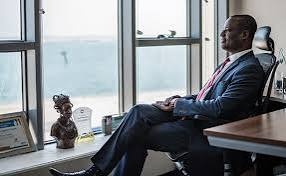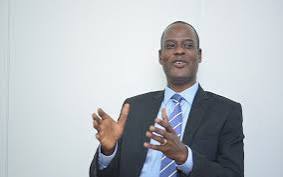Taiwo Oyedele, Chairman of the Presidential Committee on Fiscal Policy and Tax Reforms, recently highlighted Nigeria’s economic challenges, describing it as a poor country with significant potential for wealth. Speaking on Channels Television’s Politics Today, Oyedele compared Nigeria’s budget with those of other nations and even cities, underscoring the country’s fiscal limitations.

“The entire budget of the Federal Government, approximately N29 trillion, combined with all the states’ budgets, amounting to about N15 trillion, totals around N44 trillion, or roughly $30 billion,” Oyedele noted. This figure is notably less than Kenya’s budget of $32 billion and a mere fraction of South Africa’s $130 billion budget. Remarkably, it is even smaller than the budget of New York City. These comparisons starkly illustrate Nigeria’s economic standing on the global stage.
Amid criticisms of over-taxation, Oyedele dismissed the idea of introducing more taxes as a solution to Nigeria’s revenue challenges. Instead, he advocated for a more streamlined and efficient tax system. “We believe that the right way to go is not to introduce more taxes. If any tax rates are to be raised, it should result from consolidation and harmonization efforts,” he stated.
Oyedele emphasized the importance of fewer, more manageable taxes that are broad-based and easier to collect. He argued that such a system would alleviate the burden on low-income earners and small businesses. “Using data, intelligence, and technology, we can close the tax gap, ensuring that those who should be paying taxes do so, while legitimately exempting poor people, particularly nano and micro businesses and low-income earners,” he explained.
The comparison of Nigeria’s budget with other countries serves as a stark reminder of the nation’s economic constraints. Oyedele’s remarks come at a time when the Federal Government faces scrutiny over its fiscal policies and tax reforms. Recently, protests in Kenya over new tax laws have sparked similar debates in Nigeria, with citizens and experts alike questioning the efficacy and fairness of the country’s tax system.
Oyedele’s stance against introducing more taxes resonates with a growing sentiment among Nigerians who feel overburdened by the current tax regime. His proposal to focus on a more efficient tax collection system, leveraging modern technology and data analytics, offers a promising alternative. This approach aims to ensure that tax obligations are met by those who can afford to pay, without further straining the economically vulnerable segments of society.
The Presidential Committee on Fiscal Policy and Tax Reforms is tasked with addressing these complex issues, seeking to unlock Nigeria’s economic potential. By advocating for a more equitable and efficient tax system, the committee hopes to lay the groundwork for sustainable economic growth.
Taiwo Oyedele’s insights underscore the need for thoughtful fiscal reforms in Nigeria. His emphasis on efficient tax collection and the protection of low-income earners and small businesses presents a balanced approach to addressing the nation’s revenue challenges. As Nigeria strives to realize its economic potential, these reforms could play a crucial role in transforming the country’s fiscal landscape.




